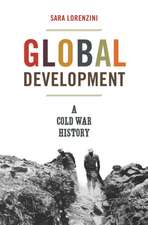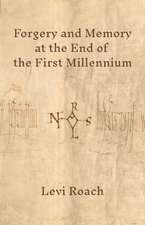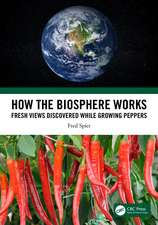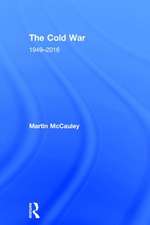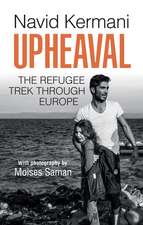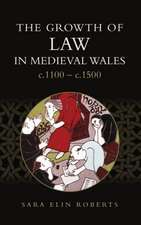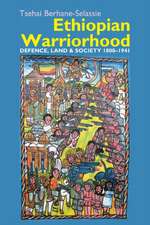Defining the Pacific: Opportunities and Constraints: The Pacific World: Lands, Peoples and History of the Pacific, 1500-1900
Autor Fred Spier Editat de Paul W. Blanken Limba Engleză Hardback – 11 noi 2002
Din seria The Pacific World: Lands, Peoples and History of the Pacific, 1500-1900
- 9%
 Preț: 1315.78 lei
Preț: 1315.78 lei - 35%
 Preț: 1050.34 lei
Preț: 1050.34 lei - 9%
 Preț: 1316.07 lei
Preț: 1316.07 lei - 29%
 Preț: 1348.74 lei
Preț: 1348.74 lei - 29%
 Preț: 1357.17 lei
Preț: 1357.17 lei - 29%
 Preț: 1021.20 lei
Preț: 1021.20 lei - 27%
 Preț: 1050.41 lei
Preț: 1050.41 lei - 29%
 Preț: 1248.24 lei
Preț: 1248.24 lei - 33%
 Preț: 362.00 lei
Preț: 362.00 lei - 29%
 Preț: 1077.71 lei
Preț: 1077.71 lei - 27%
 Preț: 1218.63 lei
Preț: 1218.63 lei - 29%
 Preț: 1023.21 lei
Preț: 1023.21 lei - 28%
 Preț: 1042.56 lei
Preț: 1042.56 lei - 27%
 Preț: 1050.41 lei
Preț: 1050.41 lei - 28%
 Preț: 1586.14 lei
Preț: 1586.14 lei - 29%
 Preț: 1181.73 lei
Preț: 1181.73 lei
Preț: 687.26 lei
Preț vechi: 1116.05 lei
-38% Nou
Puncte Express: 1031
Preț estimativ în valută:
131.55€ • 142.94$ • 110.57£
131.55€ • 142.94$ • 110.57£
Carte tipărită la comandă
Livrare economică 21 aprilie-05 mai
Preluare comenzi: 021 569.72.76
Specificații
ISBN-13: 9780754606475
ISBN-10: 0754606473
Pagini: 382
Dimensiuni: 169 x 244 x 32 mm
Greutate: 0.82 kg
Ediția:1
Editura: Taylor & Francis
Colecția Routledge
Seria The Pacific World: Lands, Peoples and History of the Pacific, 1500-1900
Locul publicării:Oxford, United Kingdom
ISBN-10: 0754606473
Pagini: 382
Dimensiuni: 169 x 244 x 32 mm
Greutate: 0.82 kg
Ediția:1
Editura: Taylor & Francis
Colecția Routledge
Seria The Pacific World: Lands, Peoples and History of the Pacific, 1500-1900
Locul publicării:Oxford, United Kingdom
Cuprins
Contents: Introduction; Perspectives on the Pacific: Sea and ocean basins as frameworks of historical analysis, Jerry H. Bentley; The Pacific as an artefact, O.H.K. Spate; The other one-third of the globe, Ben Finney; Geographic setting of the Pacific, Otis W. Freeman; Geology, Geophysics, and the Evolution of the Pacific Basin: Development of the circum-Pacific Panthalassic Ocean during the early Paleozoic, Christopher R. Scotese; Reconstructions of the circum-Pacific region, D.B. Rowley; Terrane analysis: a circum-Pacific overview, David G. Howell and David L. Jones; Linear volcanic chains on the Pacific plate, Everett D. Jackson; Some remarks on the occurrence of Tsunamigenic earthquakes around the Pacific, Kumizi Iida; Oceanography, Climatology, Biogeography: Oceanography, Lynn D. Talley, Gerard J. Fryer and Rick Lumpkin; Historical and prehistorical overview of El Niño/Southern Oscillation, David B. Enfield; Paleogeographic conclusions in light of biological data, J. Wyatt Durham; Biogeographic mosaics in the Pacific, Jared Diamond; Human Settlement, Diffusion, and Early Trans-Pacific Contacts: The peopling of the Pacific, P. S. Bellwood; Routes: alternative migration corridors for early man in North America, K. R. Fladmark; Linguistic evidence in support of the coastal route of earliest entry into the New World, Ruth Gruhn; Movement of people and ideas across the Pacific, George F. Carter; Index.
Recenzii
'The purpose of this volume is [...] to praise classic scholars and introduce them to a fresh audience. For this service they deserve the gratitude of a new generation of readers.' Bulletin of the Pacific Circle
Descriere
This volume lays the physical and conceptual groundwork for the Pacific World series, exploring both the constraints imposed and the opportunities offered to humanity by the physical environment of the Pacific region. Organized from the perspectives of Big History and macro-geography, the volume presents a series of major studies and surveys by authors from a range of disciplines. Opening with perspectives on the ocean, the purview expands to include geology, oceanography, climatology, and biogeography. In closing, the volume examines questions of human settlement, diffusion, and trans-Pacific contacts.









